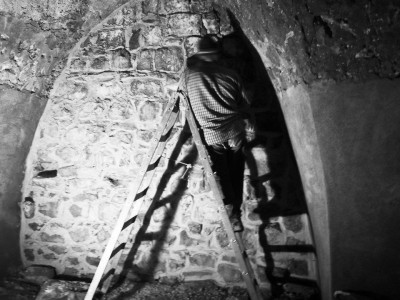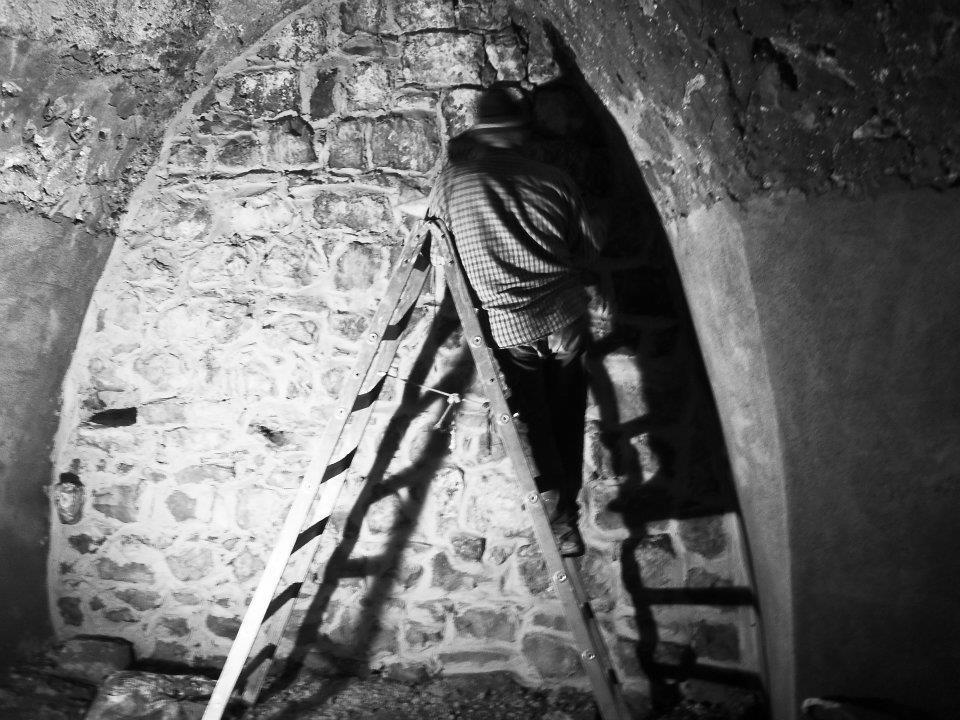by Emma and Meriam
10 January 2012 | International Solidarity Movement, West Bank
Around midnight on January 10th two international, female activists were attacked by a middle aged settler woman living in the occupied area of Hebron.
After entering Shuhada Street, which is closed to Palestinians, the two women encountered a settler woman who threw a large rock at them unprovoked. When they turned to see their attacker, the woman kicked them and tried to choke them by their kuffiyehs, Palestinian scarves worn in solidarity. Both internationals called for help and screamed, but the Israeli soldier on duty some 30 meters away did not intervene. The settler woman once again picked up a rock to renew her attack.
Knowing that if they were to defend themselves they would face assault charges, the two activists chose to flee their attacker instead. The soldier did nothing to either prevent nor respond to the attack, and when the internationals asked him to call the police, the soldier said simply he did not see anything.
When asked about his indifference to the attack, the soldier answered, “What would you do if someone is bothering the h*ll out of you?” and, “I’m not allowed to leave the area around my checkpoint.”
When the police finally arrived, the same soldier translated since the police officer refused to bring along an English-speaker. The police and soldiers took advantage of the situation to make fun of, cat call, and attempt to flirt with the international women.
Although they were given a detailed account of what happened, the police wrote nothing down and gave no information about what steps would be taken to address the event or prevent future occurrences.
When it was obvious that the police were not taking down any details, the internationals suggested them to raid the area’s Israeli settler neighborhood in the same way as soldiers raid Palestinian neighborhoods when there is a suspicion of a stone-throwing. The internationals were told not to interfere or to instruct the police in how to do their jobs, and were then ordered to leave the street.
As the internationals walked home, a police car and army jeep drove up and continued at a walking pace, sandwiching the women in between the vehicles. As they walked the police continued shouting and whistling cat calls at the internationals.
Hebron or al Khalil is a Palestinian city in the south of the West Bank. A few hundred Israeli settlers occupy the very city center from within, in an area known as H2. The Israeli army has implemented a policy of apartheid and strict separation citing the protection of the Jewish illegal settlers. Movement restrictions affects tens of thousands of Palestinian residents and have led to the destruction of Hebron’s commercial center and mass abandonment of the area, and have forced people to leave their homes. Yet, the approximately 2000 soldiers stationed in the area do little or nothing to prevent settler attacks against Palestinians, which continue to escalate. In addition, Israeli soldiers control entries and exits of H2 with several checkpoints. In cases of emergency, Palestinians’ lives are sometimes left in the hands of their occupiers, since neither Palestinian ambulances nor police are allowed into the occupied area of H2.
The occupation is illegal under international law, and many reports have raised concerns of human rights violations against Palestinians living in the area. In addition, there are many accounts where the soldiers have either stood by or assisted settlers in attacks against Palestinian residents and homes.
Attacks on internationals are nothing compared to what Palestinians face on a daily basis. International Solidarity Movement views the recent attack and the failures of soldiers and police to intervene as a further escalation and approval of settler violence, intended to worsen already unbearable circumstances for Palestinians living under occupation.
Emma and Meriam are volunteers with International Solidarity Movement (names have been changed).


